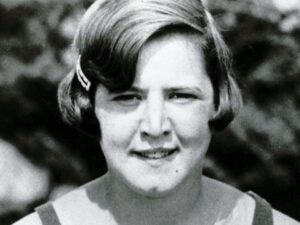Born into an Irish working-class family on September 14, 1879, Margaret Sanger’s early life was marked by tragedy and hardship. As one of eleven children born to her mother, she witnessed the toll that frequent pregnancies took on her mother’s health, eventually leading to her untimely death. This profound experience would shape Margaret’s life mission and set her on a path to becoming a pioneer in women’s reproductive rights.
As a young woman, Margaret pursued a career as a nurse and midwife during the pre-World War I era. Working in impoverished neighborhoods of New York City, she witnessed the plight of women who lacked access to adequate healthcare, contraceptive information, and the ability to control their own reproductive choices. The dissemination of such information was criminalized under the influence of clergy-influenced, physician-accepted laws, perpetuating a grave injustice.

Sparnod Fitness STH‑3002 Home Walking Pad Treadmill
Ultra‑slim, compact, and ready to use—no assembly needed. 2.5 HP motor, 1‑6 km/h speed, 2‑level incline, shock absorption, LED display, rolls under bed.
👉 View on AmazonDriven by a passion for social justice, Margaret Sanger resolved to challenge the prevailing norms and empower women with knowledge about their bodies and reproductive choices. She started a series of articles titled “What Every Girl Should Know” in her own newspaper, The Woman Rebel, defying societal taboos and pushing for women’s rights.
Her commitment to improving women’s lives led her to establish the first birth-control clinic in the United States on October 16, 1916. However, this bold move was met with fierce opposition, resulting in multiple legal cases against her. To avoid severe criminal penalties, Sanger was compelled to flee to Europe for a year. Undeterred, she continued to advocate for reproductive rights upon her return.
In 1921, Sanger founded the American Birth Control League, which later evolved into the Planned Parenthood Federation of America in 1942. Her relentless efforts culminated in organizing the first international population conference, further propelling the global movement for women’s reproductive rights.

Sparnod Fitness STH‑3002 Home Walking Pad Treadmill
Ultra‑slim, compact, and ready to use—no assembly needed. 2.5 HP motor, 1‑6 km/h speed, 2‑level incline, shock absorption, LED display, rolls under bed.
👉 View on AmazonSanger recognized that women in minority communities, often facing poverty and limited access to healthcare, were particularly vulnerable to the consequences of unplanned pregnancies. Consequently, she focused her efforts on empowering these marginalized groups with knowledge and access to contraception.
In her eighties, Margaret Sanger witnessed a significant breakthrough when the contraceptive pill, a product she had actively contributed to developing, was finally marketed. This revolutionary advancement further cemented her legacy in the field of reproductive health.
One of her most significant victories came in 1965 when the Supreme Court struck down a Connecticut law prohibiting the use of contraception, even among married couples. This groundbreaking decision was extended to unmarried couples in 1972, constitutionally guaranteeing the right to privacy and ultimately paving the way for safe and legal abortion alternatives for women.

Sparnod Fitness STH‑3002 Home Walking Pad Treadmill
Ultra‑slim, compact, and ready to use—no assembly needed. 2.5 HP motor, 1‑6 km/h speed, 2‑level incline, shock absorption, LED display, rolls under bed.
👉 View on AmazonMargaret Sanger’s unwavering determination and pioneering work in the face of adversity profoundly impacted women’s reproductive rights in the United States and beyond. Her vision and activism laid the foundation for a more just and equitable society, where women have the autonomy to make informed choices about their bodies and lives.
Featured image: Wall Street Journal









































